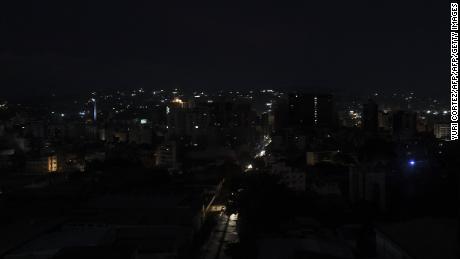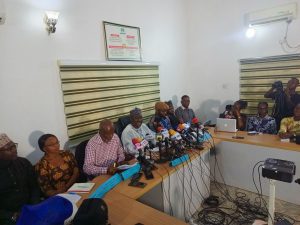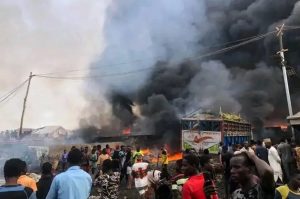Venezuelan government blames ‘electromagnetic attack’ for nationwide blackout

The blackout, which officials blamed on a hostile “electromagnetic attack,” affected almost the entire country, including the capital Caracas. About 94% of Venezuela’s telecommunications infrastructure was hit by the outage, and internet connectivity was only running at 10% nationwide, according to Netblocks, a non-profit organization dedicated to tracking outages.As of Tuesday morning, power had been restored to Caracas, the government said in a statement.The states of Mérida, Trujillo, Barinas and Aragua had seen a partial return of power, according to the statement, while the recovery was still in early stages elsewhere in the country.The government suspended all work and educational activities on Tuesday, while the Metro of Caracas was also closed.Jorge Rodriguez, Venezuela’s Communications Minister, said citizens were recommended to stay in their homes where possible.The exact cause of the outage was unclear, but as with previous blackouts, officials pointed the finger at hostile attackers.A government statement called the blackout “an electromagnetic attack,” though stopped short of providing details about who might have been responsible or how it was carried out.The statement added that authorities were working to restore power services as quickly as possible, while also trying to address drinking water access, transport systems, and needs at health centers.Venezuelan President Nicolas Maduro said that the armed forces had been mobilized to help deal with what he termed a “criminal attack against the tranquility and the peace of the homeland.”Blackouts have become a daily occurrence across Venezuela as the economic crisis has worsened, but one of this magnitude is rare.The country saw three major blackouts in March alone, with residents in poorer areas of Caracas and outside the capital hit the hardest.The March blackouts stopped mass transit in Caracas, shuttered businesses and gas stations, and disrupted operations at hospitals. Millions were left without water access for days, forcing some to travel huge distances to collect water at rivers or streams.Some rural areas in the Venezuelan countryside never fully recovered from the March blackouts, with power continuously cutting in and out for hours or days at a time.The outages exacerbated a broader political crisis that has gripped the country for years. Runaway inflation and food scarcity has crippled Venezuela, with tens of thousands leaving the country in a mass exodus.As the March outages left the country in the dark, Caracas saw dueling protests by supporters of Maduro and of opposition leader Juan Guaidó, who has been recognized as Venezuela’s interim president by more than 50 countries, including the United States.Then, as now, Maduro blamed the blackout on hostile attacks, accusing the United States of sabotaging power plants and the electricity grid. The US denied the charges, and pulled all diplomatic personnel from its embassy in Caracas. Meanwhile, Guaidó and his supporters accused Maduro of mismanaging the income from the country’s massive oil reserves and failing to maintain public infrastructure.Guaidó repeated such criticisms on Twitter on Monday, calling the recurring blackouts a “latent humanitarian catastrophe” and lambasting “the corruption and incapacity of the regime.”Mallika Kallingal, Maria Ramirez Uribe, Vasco Cotovio and Ralph Ellis contributed reporting.







